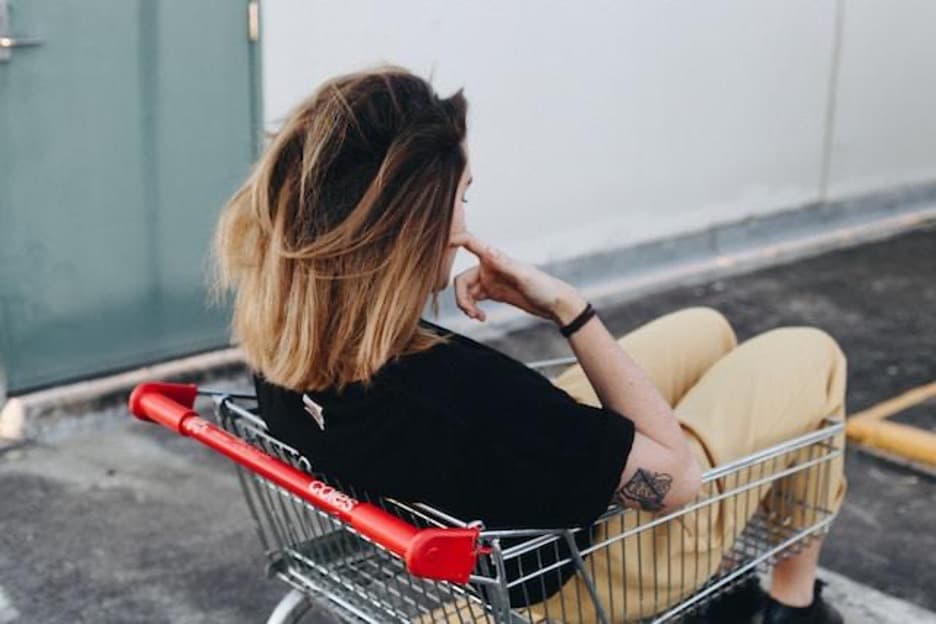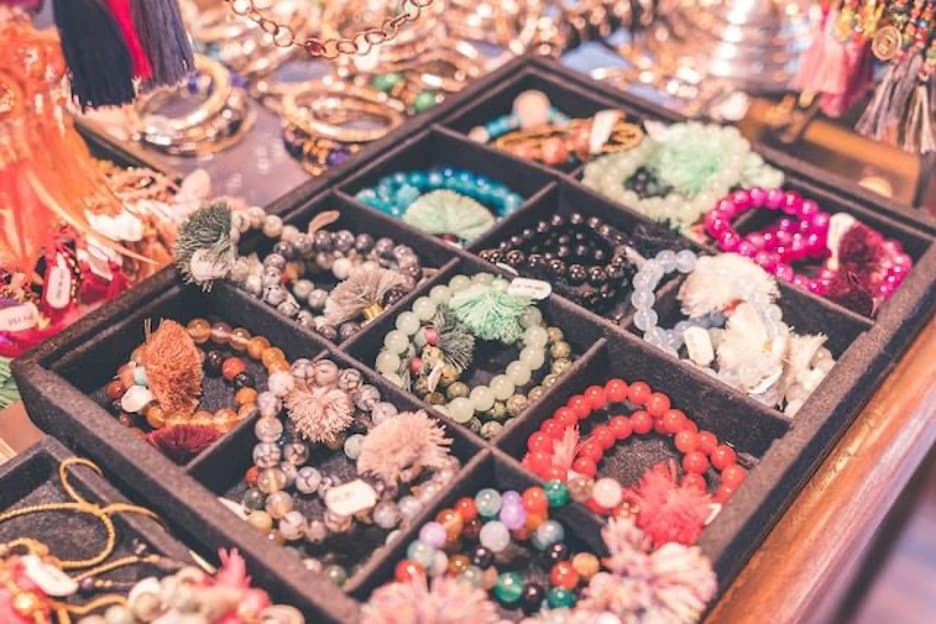Join our live online group lessons starting September 1! Sign up until August 22 here.
Days
Hours
Minutes
Join our live online group lessons starting September 1! Sign up until August 22 here.

Have you ever bought a T-shirt three sizes larger because of a language barrier? No doubt, shopping in a foreign country can be a nightmare, and Serbia is no exception. Luckily, you just need to learn a handful of phrases for shopping in Serbian, and you’ll be ready to shop ‘til you drop!
That’s why this article will cover all the essential phrases you’ll need to navigate your next shopping spree in Serbia. So, get your wallet, and let’s begin!
Luckily, most shopping malls and supermarkets rely on self-service, and you can get away with little to no talking. Still, in many shops, you won’t be able to buy anything without at least some communication.
So, here are the phrases you’ll need to know.
(Do you have…)
Imate li maslinovo ulje?
(Do you have olive oil?)
Imate li ovu majicu u crvenoj boji?
(Do you have this T-shirt in red color?)
Mogu li da…
(Can I…)
Mogu li da probam ove čizme?
(Can I try on these boots?)
Mogu li da zamenim ovaj džemper za veći broj?
(Can I exchange this sweater for a larger size?)
Or you could use the phrase Je l’ mogu da with the same meaning.
Je l’ mogu da pogledam narukvice?
(Can I see the bracelets?)

Treba mi kutija aspirina.
(I need a box of aspirin.)
Treba mi krema za sunčanje.
(I need a sunscreen.)
If you’re asking for more than one thing, though, you’ll need to use this phrase in the plural – trebaju mi.
Trebaju mi naočare za sunce.
(I need sunglasses.)
Trebaju mi princes krofne.
(I need cream puffs.)
(Give me…)
Dajte mi dva hleba i jogurt.
(Please, give me two loaves of bread and yogurt.)
Uzeću ove cipele broj 38.
(I’ll take these shoes in size 38.)
Gde je…
(Where is…)
Gde je kabina za presvlačenje?
(Where is the changing room?)
Gde je kasa?
(Where is the checkout?)
(Wrap a gift)
When buying gifts, you can ask the shop assistant to wrap it for you:
Možete li da upakujete?
(Can you gift wrap it?)
(Shopping bag)
Typically, the shopping assistant will ask if you need a bag:
Da li Vam je potrebna kesa?
(Do you need a bag?)
You can answer with a simple da (yes) or ne (no), but be aware that most shops will charge for shopping bags.
(Paying)
When it’s time to pay, the shop assistant might ask:
Kako plaćate?
(How do you want to pay?)
Of course, the usual payment methods are kartica (credit or debit card) and keš/gotovina (cash). Either way, you’ll need to use novac (money), colloquially known as pare.
But even if you have no money, there’s another way to pay – na veresiju. Basically, this means that you can take the goods now and pay for them later when you have the money. That said, this isn’t a valid method and may only work in local shops where the owner knows you well and trusts you. So, your best bet is to stick with keš and kartica.
If you’ve ever bought a cat sweater despite not owning a cat just because it looked cute, chances are you’re an impulse buyer. But don’t worry — as long as you keep the receipt (račun), you’ll likely be able to return most goods or, at least, exchange them for something else.
Here’s how you can exchange an item:
You: Mogu li da zamenim ovu braon torbu za crnu?
(Can I exchange this brown bag for a black one?)
Shop assistent: Naravno. Imate li račun?
(Of course. Do you have the receipt?)
And here’s how to return something:
You: Mogu li da vratim ove cipele? Neudobne su.
(Can I return these shoes? They are uncomfortable.)
Shop assistant: U redu. Imate li račun?
(All right. Do you have the receipt?)
With the basic phrases for shopping in Serbian out of the way, here’s some vocabulary for describing shopping habits.
If you’re a kupoholičar or kupoholičarka, shopping malls are your natural habitat, and you likely can’t resist a good popust (sale) even when it hurts your finances.

Stipsa is on the opposite end of the spectrum. Namely, it’s a person who tries to save every penny and never pays for drinks or buys presents. Needless to say, you don’t want to be stuck with this label, so try to find a balance between overspending and watching every dime.
On a similar note, if someone tries to get freebies all the time, others might describe this behavior with the verb grebati se. The freeloader guilty of sponging off is known as grebator.
Grebator: Možeš li da mi pozajmiš 1000 dinara? Zaboravio sam novčanik.
(Can you lend me $10? I forgot to bring my wallet.)
Friend: Kad ćeš da prestaneš da se grebeš?
(When will you stop sponging off?)
On the other hand, if you’re too generous (or not good at managing finances), you run a risk of going švorc (broke).
Friend: Ajmo u kafanu večeras.
(Let’s go to kafana tonight.)
Broke friend: Nema šanse, švorc sam.
(No way, I’m broke.)

At last, you’re all set to start shopping in Serbian. All you need to do is decide where. Here are some of your options.
Tržni centar is shopaholics’ promised land where you can buy virtually everything. You’ve got plenty of shopping centers in Belgrade and other cities, but the most popular are Ušće, BIG, and Delta City.
However, if you desire a more authentic shopping experience, you can visit a pijaca and stock up on fresh produce like a local.
When suffering from a throbbing headache or seasonal allergies, you’ll find medicines at apoteka.

In case you’re thinking this is another word for a pharmacy, it’s not. Actually, dragstor is just a local shop that’s open 24/7. In other words, it’s where you go when you get snackish at 3 am.
Yup, this is where you go when your cat demolishes the TV or when you spill hot coffee over your laptop. The most popular appliance stores are Gigatron, Tehnomania, and Tehnomedia.
At last, if you’re not big on shopping, you don’t ever have to visit an actual store. Whatever you need, you can likely buy it online. Just google it, and you’ll land in an internet prodavnica.
Admittedly, delivery services in Serbia are less than ideal. But hey, if you haven’t waited for your delivery the whole day, only to have to go and pick it up from the warehouse – it’s like you’ve never even been to Serbia.
Now that you’re equipped with the essential phrases for shopping in Serbian, you can buy anything you need with confidence. But don’t stop here — next time you go shopping, use it as an opportunity to practice your Serbian and pick up new phrases.
And if you go a bit overboard and end up broke, no worries. Just subscribe to our biweekly newsletter and study Serbian without spending a dime!
1 Response